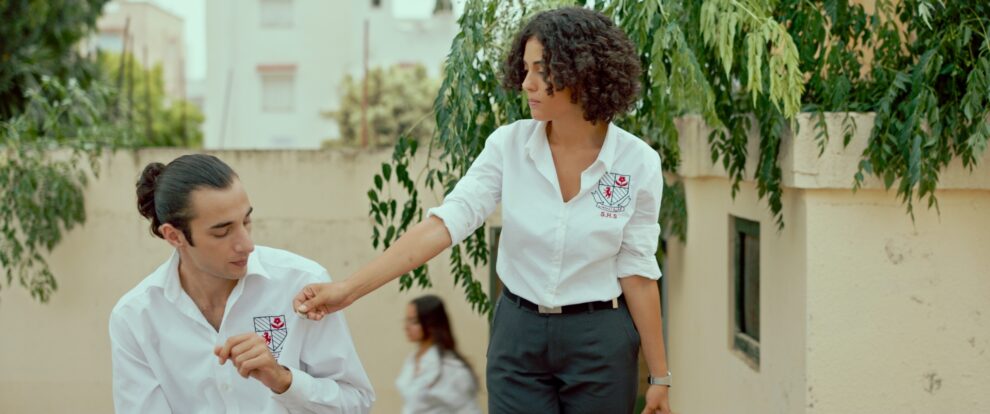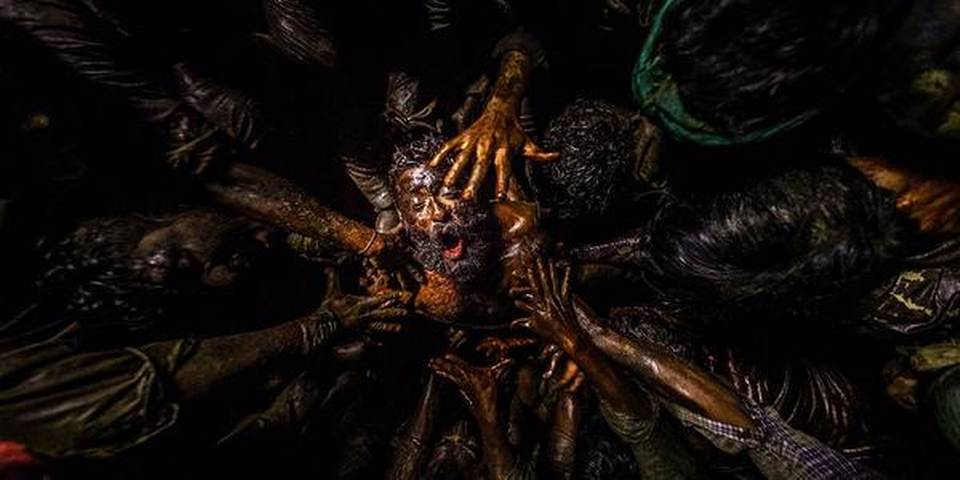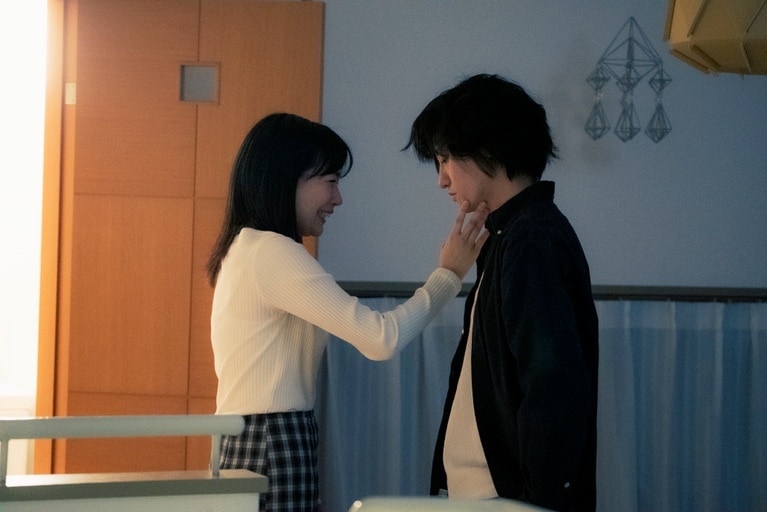Israel's Independence Day, which is celebrated in all glory in the country, actually coincides with the commemoration of Al-Nakba (The Catastrophe), a day the Palestinians commemorate the 1948 events that led to their dispossession and displacement from Mandatory Palestine. Firas Khoury, in his debut movie, uses the particular concept in order to present a coming-of-age story with intense social, political and historical repercussions, by focusing on the lives of youths whose Palestinian parents chose to actually stay in Israel.
“Alam” Premieres on VOD & Digital on April 26, courtesy of Film Movement
17-year-old Tamer is an artistic youth who has troubles at school, as, just like his best friends, Shekel and Rida, he spends most of his time hanging out on the street, searching for way to buy a joint, playing video games, talking about girls, and in general, slacking out. However, when a beautiful new student, Maysaa', joins the classroom, she draws his interest and also brings him closer to Safwat, another classmate who carries a grudge for Israel for the aforementioned events, and the situation that the Palestinians find themselves in nowadays. As he and Maysaa' are obviously planning something, Tamer, initially due to his interest in the girl, is drawn to them and eventually enters the world of activism, despite his father's pleas and threats to stay away from such endeavors and focus on his lessons. Eventually, the group of youths decide to make a symbolic act during the celebration of Israel's Independence Day.
Firas Khoury directs a film with an evident purpose of showing the hardships the Palestinian youths face nowadays in Israel, and through them, the whole nation of Palestinians. His approach to the concept is quite interesting, with him showing two different types of youths in that regard. Tamer, Shekel and Rida do not really care, and act like teenagers who just want to have fun, while Safwat and Maysaa' have intense conscience about the events of the past and how the lives of Palestinians have been shaped, thus essentially being activists.
In one of the best aspects of the movie, Khoury's approach to the events is quite realistic. Tamer reluctantly decides to become an activist himself due to his wish to be with Maysaa' essentially drawing his friends in the act, who are there for their own reasons. In the meantime, while rather vocal and disillusioned, Safwat, who is somewhat of the leader of the group, has his own practical shortcomings, with both aspects coming to the fore in the most realistic fashion during the night of ‘the deed'. As such, it is easy to say that the portrait of the particular “youth” is as accurate as possible, and the part of the movie that works the best.
Apart from this however, there are several shortcomings to be found here. For starters, there is an evident artificiality in the script, in the way that some narrative aspects are here just to progress the story. For example, the broken water dispenser in the school, the celebrations during the fateful night, or the way the group finds a flag are not exactly organically embedded in the narrative, with their whole presence being utterly on the nose. Furthermore, the whole concept of the ‘mad uncle' may be implemented in order to present one of the most visually impressive and meaningful scenes of the movie, with the burning of the olive tree, but also seems as if being forced into the narrative for a particular purpose. Lastly, during the last part, Khoury loses his sense of ‘direction' almost completely, with the movie going all over the place, as in the scene in the bed for example, or the flashforwards. The very ending definitely compensates but the sense that something is not going well after a point, is permeating.
The acting on the other hand is on a rather high level, with the actors playing their roles as naturalistically as possible, in perfect resonance with the overall film aesthetics. Mahmoud Bakri as Tamer highlights his inner struggle and his timid feelings for Maysaa quite eloquently. Sereen Khass as Maysaa' is also quite convincing, with her role also functioning as an additional comment regarding the place of women in the current Israeli society, in another very interesting remark here. Mohammad Karaki as Shekel steals the show with his ‘showman' ways while Mohammed Abed Elrahman plays the frustrated but also rather smart youth Safwat in a rather memorable fashion. The scenes with his fighting with his teacher are definitely among the best in the movie, showcasing both the comments Khoury wanted to make and being rather humorous at the same time.
Nadia Ben Rachid's editing induces the movie with a fitting, relatively fast pace, but, as mentioned before, the whole thing falters close to the end, with the presentation of the story not working particularly well. Frida Marzouk's cinematography follows a style that points towards the documentary for the most part, which works quite well for the film. The intense close ups, however, in a style that is definitely of French-filmmaking, do become annoying after a point, as they seem to serve no particular purpose.
“Alam” has its shortcomings in terms of filmmaking. However, it emerges as an important title, both for the presentation of an aspect of Palestinian life rarely shown in cinema, and for the way it implements the coming-of-age aspect of the narrative in order to do so.















